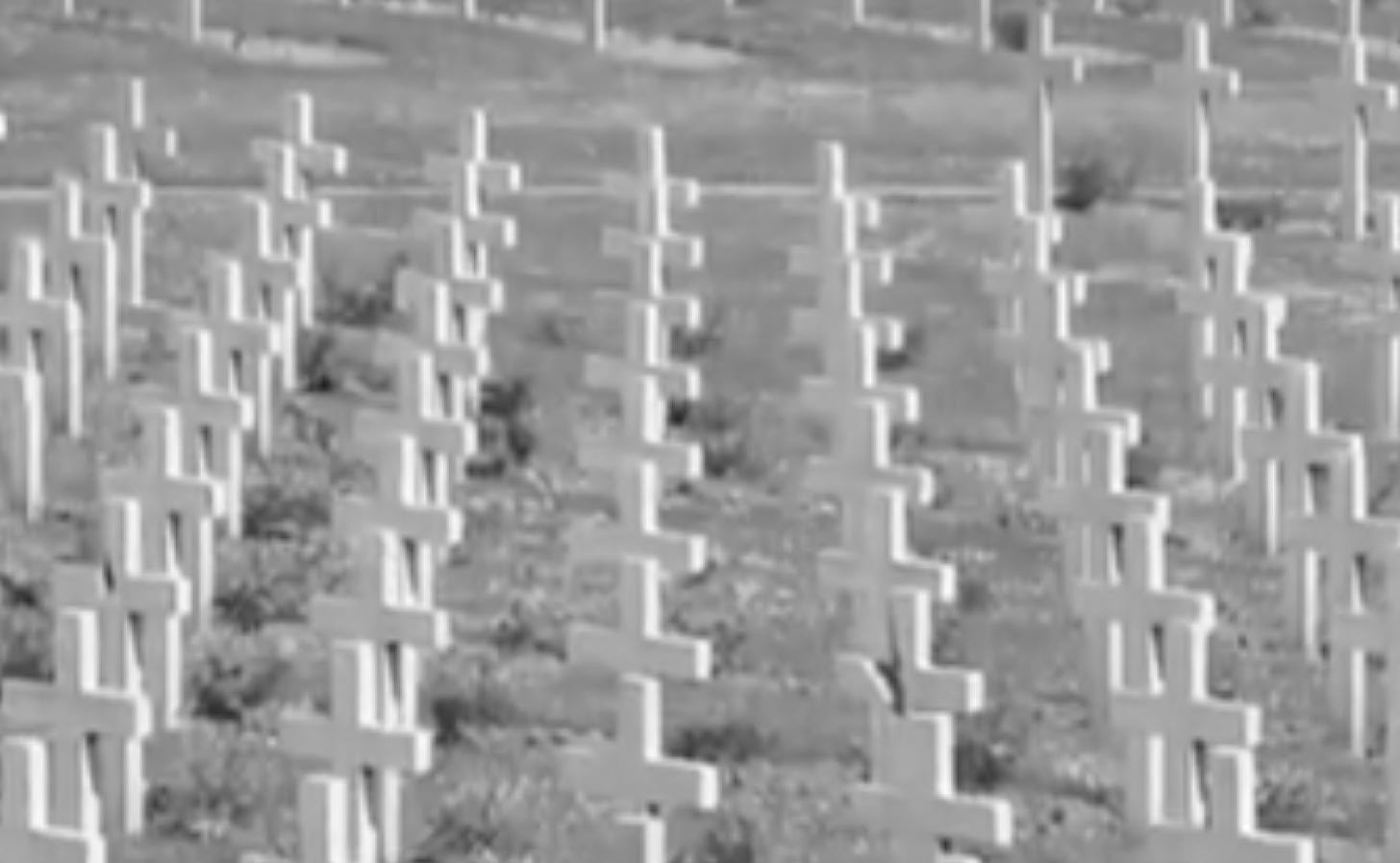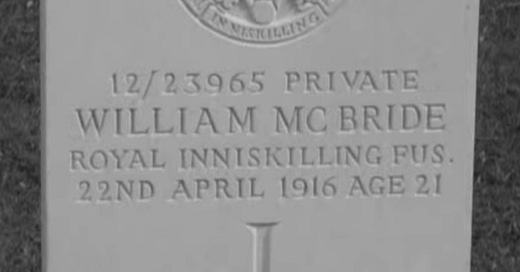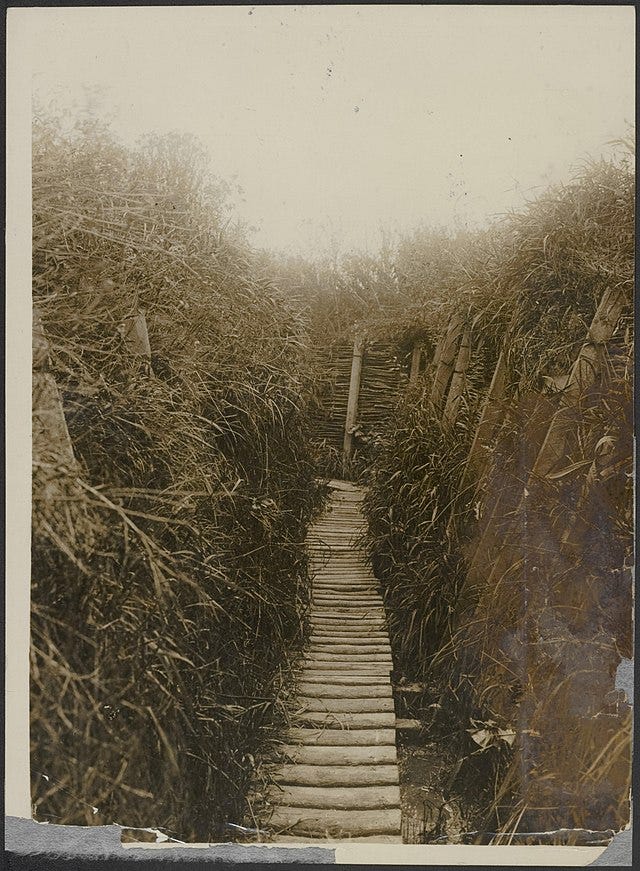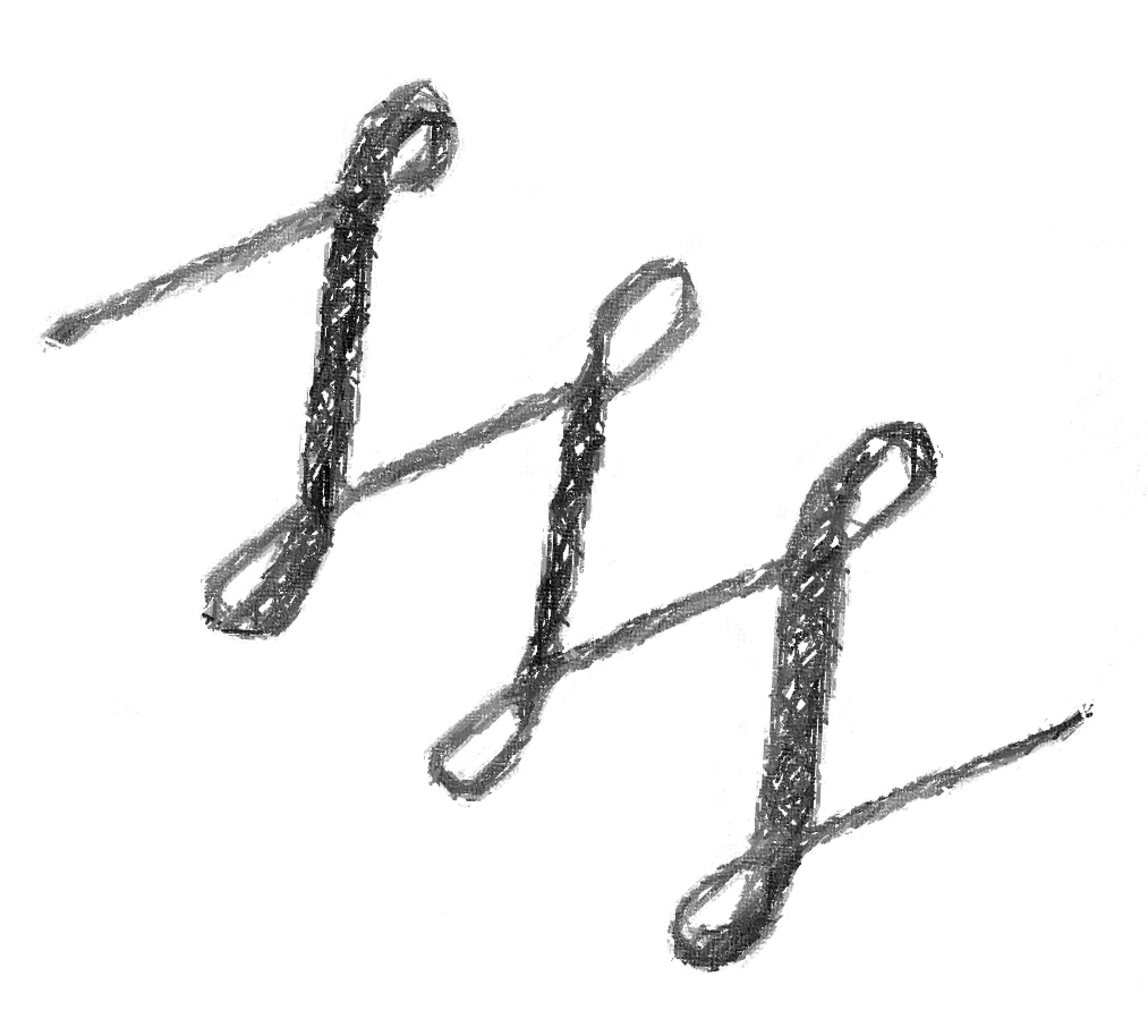Hi all,
Thank you for joining me for this week’s song, “No Man’s Land”, by Eric Bogle (1976). If you’d like to hear the song before you read the background, I’ve included a YouTube video below the article.
Below, you’ll find some background information and explanation of the lyrics (written in italics). Comments and questions are welcome. For Japanese students, vocabulary words in bold are provided in Japanese below. TOEFL (PBT) 450+, Eiken 2, CEFR B1.
The Background
(148 words)
Many young people might not know the story of a truce that happened during World War I. Something special happened on Christmas Eve in 1914. British and German soldiers, who were enemies, decided to stop fighting for a short time. It started when the British soldiers heard the Germans singing and saw lanterns in their trenches on Christmas Eve. The next day, they met in the middle. This was called “No man’s land” because neither side had captured it. They exchanged gifts, took pictures, and even played football. Some soldiers were not happy about it, and military leaders tried to stop it from happening again. Even though there were a few more times when soldiers took short breaks from fighting, it didn't happen a lot. They called it the “Live and Let Live” system in some quiet areas where both sides agreed to pause and fix their trenches. (1)
The Song
(573 words)
In this song, the singer is someone who is walking the countryside in France and stops to rest in a graveyard. Those who are buried there are soldiers who fought in the war. The singer begins by introducing himself (How do you do?) to the private. A private is the lowest-level soldier in the military.
Well, how do you do, Private William McBride
Do you mind if I sit here down by your graveside?
I'll rest for a while in the warm summer sun
I’ve been walking all day, Lord, and I’m nearly done
I see by your gravestone you were only 19
When you joined the glorious fallen in 1916
Well, I hope you died quick, and I hope you died clean
Or, Willie McBride, was it slow and obscene?
Chorus
Did they beat the drums slowly, did they sound the fife lowly?
Did the rifles fire o'er ye as they lowered ye down?
In other words, did the military give you a salute by firing their rifles over your grave while a flute and drums played quietly ?
Did the bugles sing “The Last Post” in chorus?
Did the pipes play the “Flowers of the Forest”?
“The Last Post” and “Flowers of the Forest” are tunes that are played today in memorials of war and at military funerals. [See YouTube videos below.]
Someone’s loved one
The singer asks if there was someone special in the soldier’s life who would remember him - enshrine his memory, or would his life be forgotten and only an old photograph remain.
And did you leave a wife or a sweetheart behind
In some faithful heart is your memory enshrined?
And though you died back in 1916,
To that loyal heart are you always 19?
Or are you a stranger without even a name
Forever enshrined behind some glass pane
In an old photograph, torn and tattered and stained
And fading to yellow in a brown, leather frame
The graveyard today
Well, the sun’s shining now on these green fields of France
The warm wind blows gently, and the red poppies dance
The trenches have vanished long under the plow
No gas and no barbed wire, no guns firing now
Here, gas refers to types of gases that were used in chemical warfare in WWI. The most common gas was called “mustard gas”. It caused serious skin burns and damaged eyes and lungs. International agreements have made its use illegal.
The next few lines talk about the white crosses in the graveyard. The crosses are silent, but they are witnesses to the cruelty of war and how uncaring we can be of other human beings.

For here in this graveyard, it’s still No Man’s Land
The countless white crosses in mute witness stand
To man’s blind indifference to his fellow man
And a whole generation who were butchered and damned
And I can’t help but wonder now, Willie McBride
Do all those who lie here know why they died?
Did you really believe them when they told you “The Cause”?
Did you really believe that this war would end war?
World War I was so horrible that people did not want to repeat it. They called it “The war to end all wars.”
The suffering, the sorrow, the glory, the shame
The killing, the dying, it was all done in vain
For Willie McBride, it’s all happened again
And again, and again, and again, and again
…
And still, we ask:
How much longer can we be indifferent to the suffering of our fellow human beings? Can we not call a permanent truce?
Question:
What is the most important line(s) of these lyrics for you?
VOCABULARY
truce 休戦
trench 溝
private 二等兵
graveyard 墓地
obscene 残虐
bugle ラッパ
enshrined 鎮座
pane ガラス板
tattered ボロボロ
fade 退色
vanished 消えた
plow (plough UK) しろかき(耕す機械)
barbed wire 有刺鉄線
witness 証人
mute ミュート
blind indifference 無関心
butcher 虐殺
damn 呪われろ
suffering 苦しみ
sorrow 悲しみ
glory 栄光
shame 恥
in vain 無駄に
The Last Post
Flowers of the Forest
SOURCE
(1) The Real Story of the Christmas Truce. Imperial War Museums. 2023. https://www.iwm.org.uk/history/the-real-story-of-the-christmas-truce#:~:text=Late%20on%20Christmas%20Eve%201914,be%20shouted%20between%20the%20trenches. Accessed 7 De 2023.











The Russia invasion of the Ukraine is so scary. NATO and the EU nations seem to cautious about standing up to Putin. Time will tell if another world war is on the horizon.
The lyrics, photos and background of "No Man's Land" painted such a tragic picture. But it was the music that will make it particularly hard to erase.